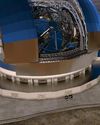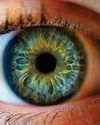Science

How It Works UK
WHY DO WE SLEEP?
A good night's rest is an essential part of life, but getting enough can be hard. We take a look at the science behind snoozing and how you can sleep easy
8 min |
Issue 203

How It Works UK
REDISCOVERING THE DINOSAURS
They're often depicted as huge, scaly beasts, but new discoveries are changing our beliefs about the creatures that once stalked our planet
5 min |
Issue 203

How It Works UK
HOW SOY SAUCE IS MADE
This salty, traditional Chinese seasoning is the product of fermented crops
2 min |
Issue 203
How It Works UK
Study reveals a 'flawed argument' in the debate over when plate tectonics began
Earth’s crust today has a surprisingly similar composition to the planet's first outer shell, or ‘protocrust’, new research finds.
2 min |
Issue 203

How It Works UK
TOUR GUIDE TO MARS
Pack your spacesuit and get ready to tick off the must-see sights of the Red Planet
3 min |
Issue 203

How It Works UK
GREEK TEMPLE CONSTRUCTION
How ancient architects erected some of the world's most famous places of worship
2 min |
Issue 203

How It Works UK
KITCHEN SINK CHEMICALS EXPLAINED
Every home has an armoury of liquids to combat stains and leave surfaces germ-free. But how do they do their job?
3 min |
Issue 203

How It Works UK
Lab-grown teeth could offer alternatives to implants
Scientists have gotten one step closer to growing replacement teeth in the lab, a development that could pave the way for new alternatives to unpleasant dental fillings and root canals.
2 min |
Issue 203

How It Works UK
NATIONAL FLOWERS OF THE WORLD
Why some countries have picked beautiful blooms to represent them
5 min |
Issue 203

How It Works UK
SCHOOL SCIENCE ESSENTIALS
Take a tour of a classroom laboratory and discover how your school's scientific instruments work
4 min |
Issue 203

How It Works UK
A 'MILITARY OUTPOST' MIGHT BE THE BIRTHPLACE OF ALEXANDER THE GREAT'S GRANDMOTHER
Archaeologists may have discovered the remains of Lyncus, an ancient city that was the capital of the kingdom of Lynkestis.
1 min |
Issue 203
How It Works UK
China's '2D' chip could soon be used to make silicon-free chips
Researchers in China say they have created a new silicon-free transistor that could significantly boost performance while reducing energy consumption.
2 min |
Issue 203

How It Works UK
Winter sea ice cover is at its lowest in a 47-year satellite record
Winter sea ice cover has dropped to its lowest maximum on record as temperatures continue to exceed 1.5 degrees Celsius.
2 min |
Issue 203

How It Works UK
Elusive colossal squid finally caught on camera
The colossal squid has finally been caught on camera, an entire century after it was first discovered.
1 min |
Issue 203

How It Works UK
SCIENTISTS SPOT A 'DARK NEBULA' BEING TORN APART BY INFANT STARS
A battle is raging between darkness and light in the constellation Circinus, and a new image from the National Science Foundation's Dark Energy Camera captures a key turning point in the cosmic campaign.
1 min |
Issue 203

How It Works UK
Severe drought helped bring about a ‘barbarian' invasion of Roman Britain
A severe three-year drought helped bring about a 'barbarian' invasion of Roman Britain in 367 CE, a new study finds. In that year, Roman troops stationed at Hadrian's Wall on the empire's northern frontier rebelled, and three different 'barbarian' groups invaded Roman Britain, with the Picts attacking northern Britain from Scotland, the Scoti invading western Britain from Ireland and the Saxons invading southern Britain from the European continent.
1 min |
Issue 203

How It Works UK
Solar wind could be making water on the Moon
Constant gusts of particles from the Sun may be creating water molecules on the Moon, a new NASA-led experiment hints.
2 min |
Issue 203

How It Works UK
'Fingerprints of cancer' found after infrared light was flashed at samples
Flashes of infrared light can detect signs of cancer in a patient’s blood. Scientists demonstrated that a test using infrared light can detect the difference between blood samples from patients with lung cancer and samples from those without the disease with up to 81 per cent accuracy.
2 min |
Issue 203

How It Works UK
WHAT IS JAUNDICE?
This condition, common in newborns, can turn skin and eyes a shade of yellow
1 min |
Issue 202

How It Works UK
HOW WINE IS MADE
From grape to glass, the ancient process of making one of the world's most popular beverages
1 min |
Issue 202

How It Works UK
10 AMAZING EARTH FACTS
From its active core to its explosive surface, scientists have made incredible discoveries about the past, present and future of the rock we call home
1 min |
Issue 202

How It Works UK
HOW TO DIG FOR TREASURE
There's a lot more to a detectorist's hobby than picking up a metal detector and sweeping a field. Here's how to responsibly prepare for a fun day out, detecting techniques and, perhaps most importantly, the law
3 min |
Issue 202

How It Works UK
NATURE'S MOST TOXIC ROCKS
Why these sparkling crystalline minerals are among the most hazardous rocks in nature
1 min |
Issue 202

How It Works UK
HOW FIREFIGHTING AEROPLANES WORK
Aerial firefighters are essential machines used to cover and contain rapid-spreading wildfires
2 min |
Issue 202

How It Works UK
DEADLY ASTEROID CLOSE CALLS
Asteroid 2024 YR4 may not be the serious threat it was once thought to be, but scientists are still concerned about the possibility of future asteroid collisions
2 min |
Issue 202

How It Works UK
IS OUR UNIVERSE THE ONLY ONE?
Might our universe – as vast as it is – be simply one of many? We look at the growing evidence that there's more than one cosmos out there
5 min |
Issue 202

How It Works UK
BENEATH OUR FEET
A TREASURE TROVE OF INCREDIBLE AMATEUR DISCOVERIES IN BRITAIN
2 min |
Issue 202
How It Works UK
CHINA'S NEW BATTERY CHARGER IS TWICE AS FAST AS TESLA'S
A Chinese automaker has developed a battery that will enable electric vehicles (EVs) to charge almost as quickly as it takes to fill a regular car's gas tank.
1 min |
Issue 202

How It Works UK
The Extremely Large Telescope could detect signs of alien life
The Extremely Large Telescope (ELT), currently under construction in northern Chile, will give us a better view of the Milky Way than any ground-based telescope before it.
2 min |
Issue 202

How It Works UK
New cells discovered in the eye could help restore vision
Scientists have identified never-before-seen cells in the human eye that could potentially help reverse vision loss caused by common diseases such as macular degeneration.
2 min |